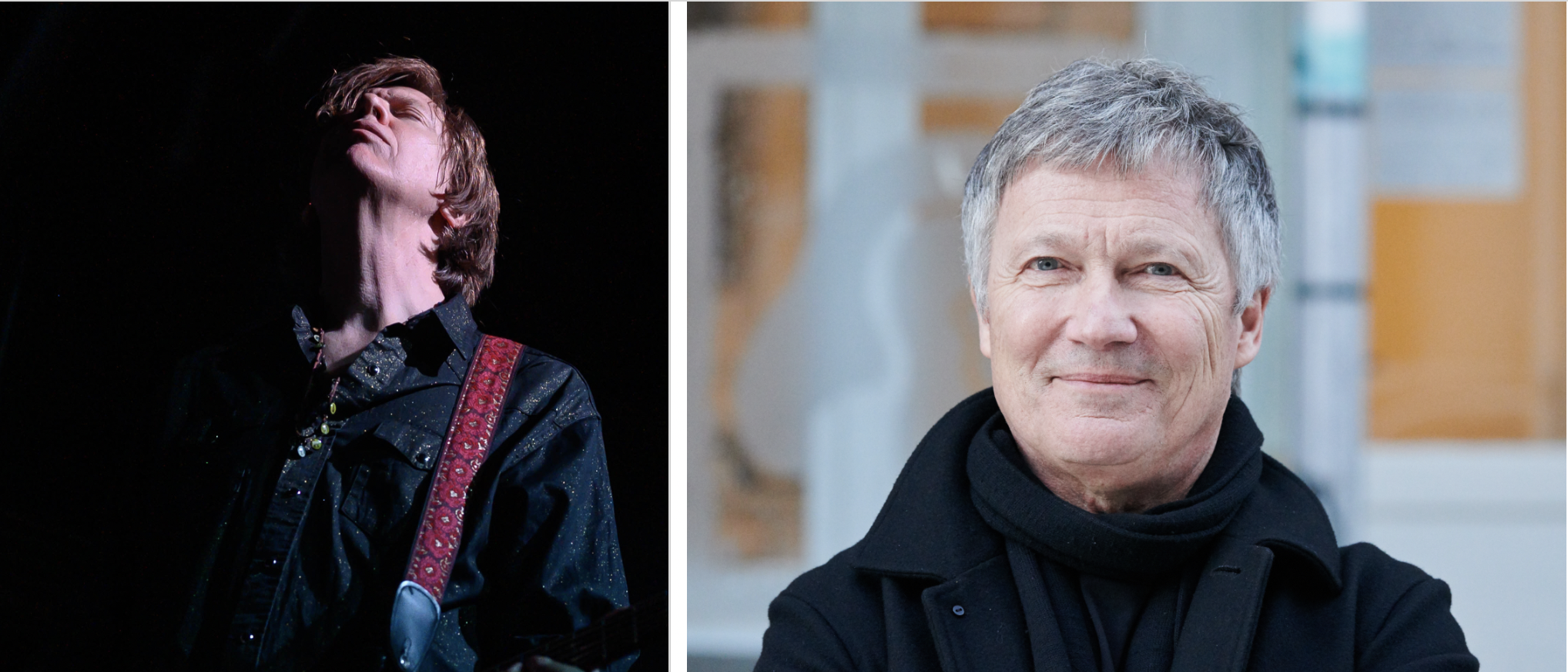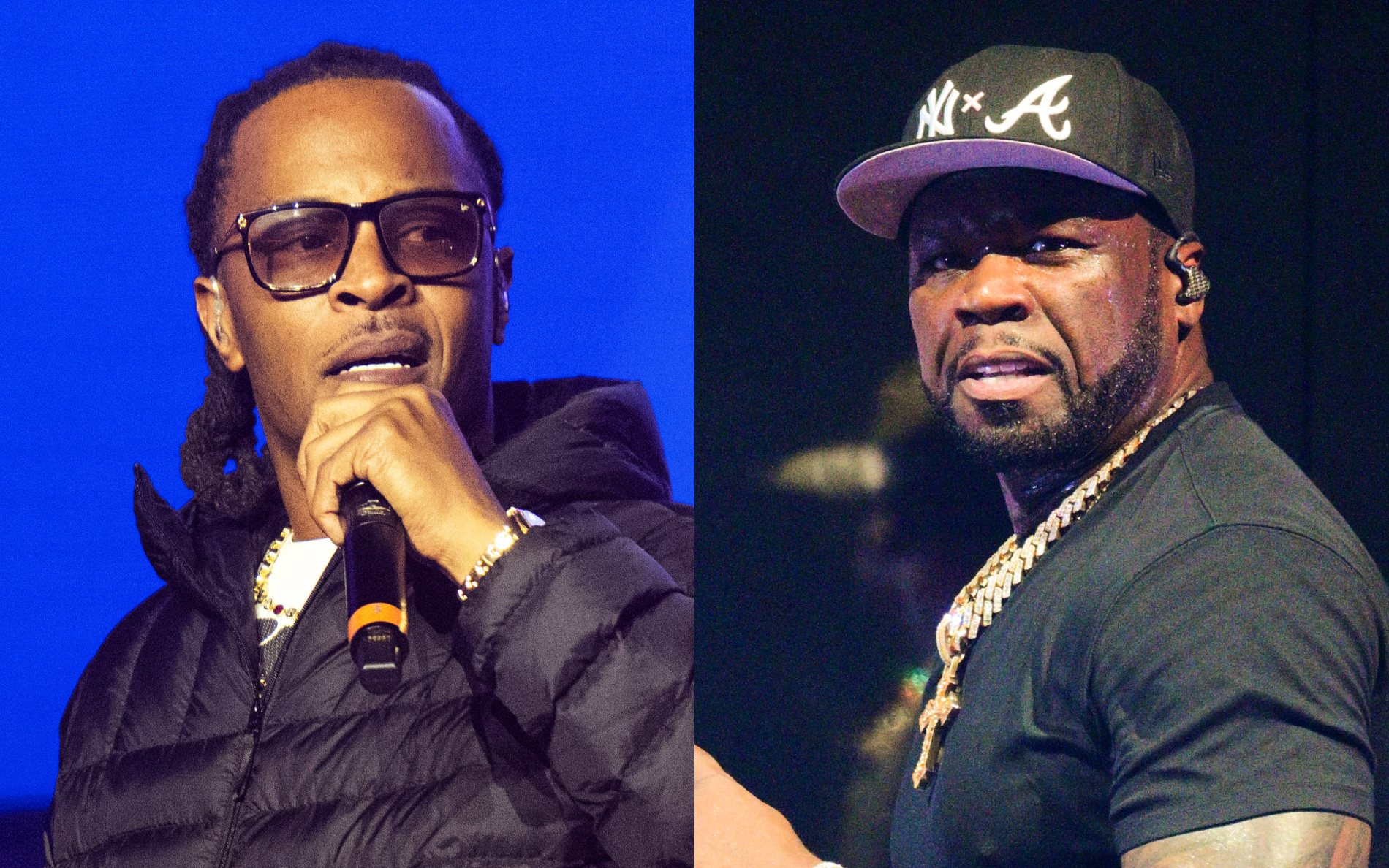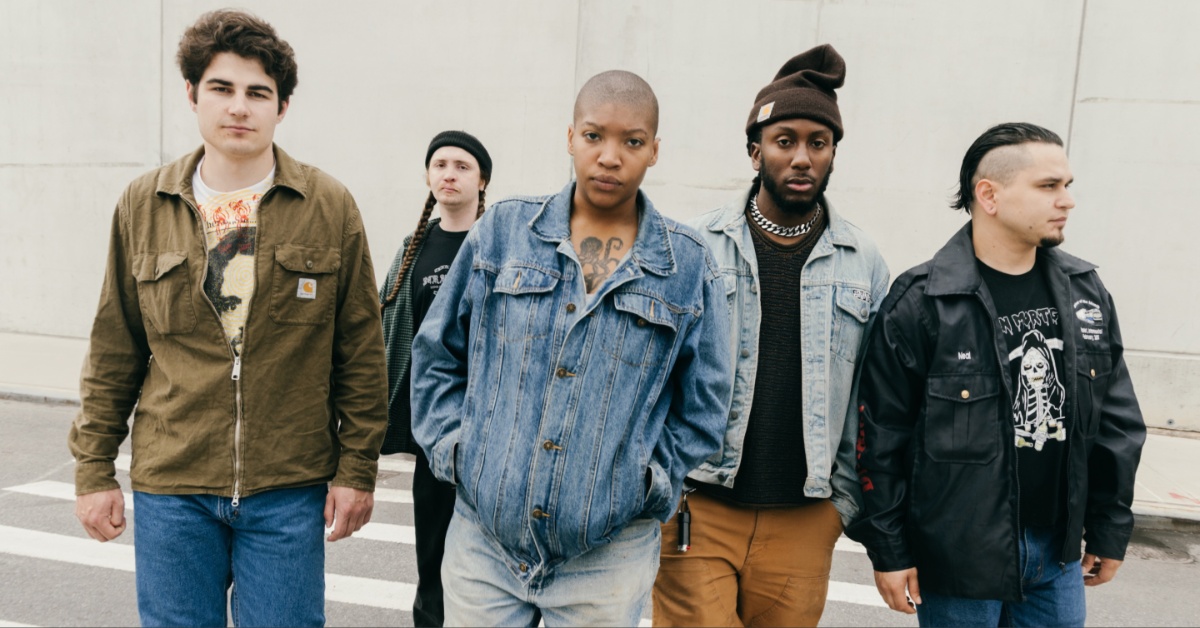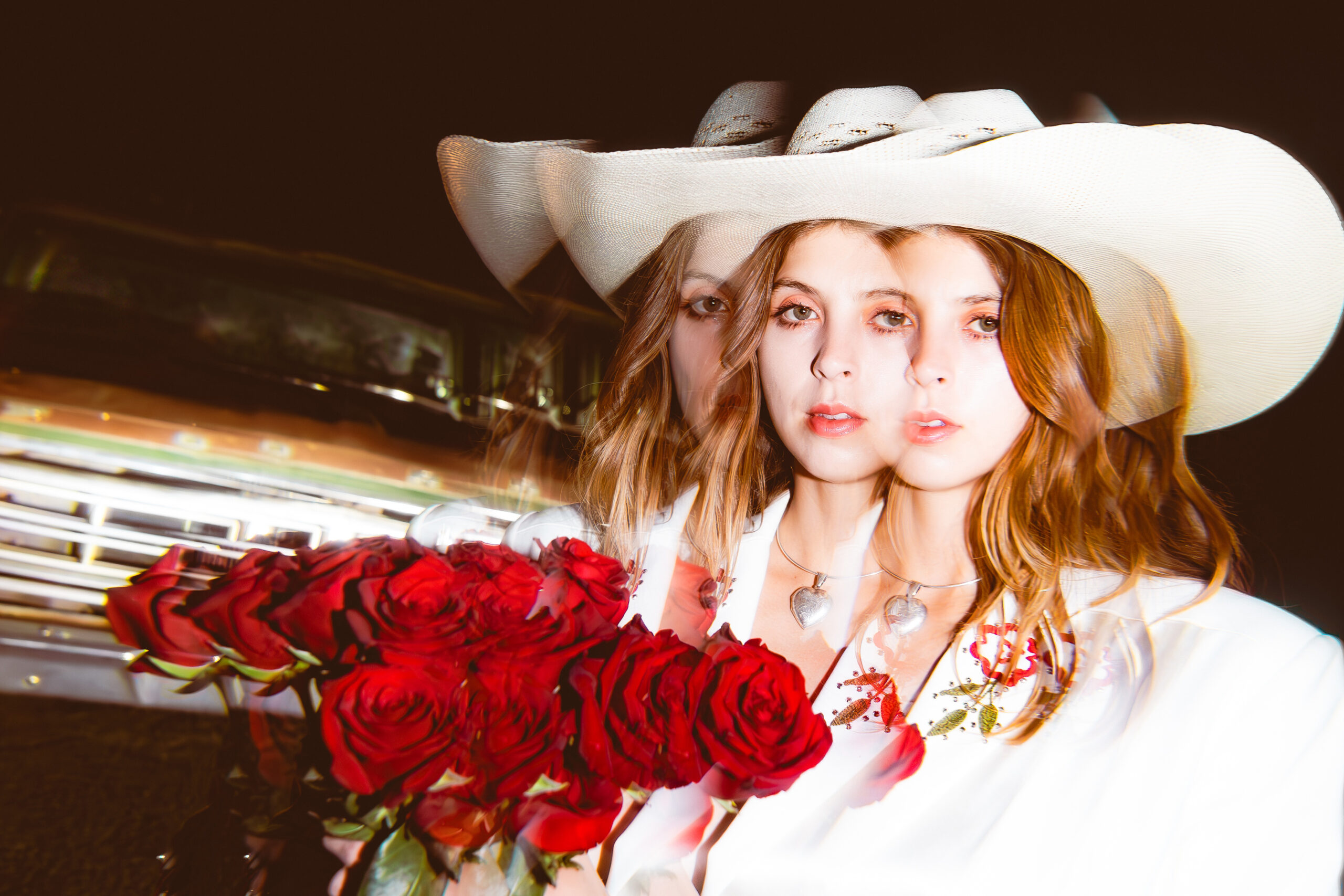
German guitarist Michael Rother carved his name into the veneer of underground rock 50-plus years ago via a brief stint with Kraftwerk and longer productive (and highly influential) tenures in the proto-post-punk unit Neu! and the ambient laboratory Harmonia. These days, Rother is a multifaceted solo artist and enthusiastic collaborator. From his slicing, choppy motorik runs in Neu!’s catalog to the cascading electronic vistas of Harmonia and his introspective solo works, he’s long strived to create a style and character uniquely his and his alone.
As a member of Sonic Youth, guitarist/vocalist Thurston Moore was an enfant terrible napalming the American underground of the ‘80s with detuned guitars, straight-up noise and abstract poetry. While SY grew from noise rock royalty to Alternative Nation darlings in their three-decade career (1981-2011), Moore remained in motion with new bands, inspired collaborations and his own literary imprint, Ecstatic Peace Library. There was no guidebook for him to follow; even if there was, he most certainly would have traded it in for credit toward the stack of free jazz vinyl being held under the counter for him at his favorite record store.
More from Spin:
Kim Gordon, Kim Deal Team For Sonic Youth Song On John Mulaney Show
Forever Young
Rising Star
On Sunday (March 30), these two guitar fulcrums will share a stage at New York’s Knockdown Center for maximum intention. Rother’s set will draw from Neu! and Harmonia, as well as material from his 2022 release, As Long As The Light. Don’t expect Moore to deliver tracks from his recent album, Flow Critical Lucidity; instead, he’ll throttle his six-stringed gamma ray alongside master percussionists Tom Surgal and William Winant for some invigorating improvisation.
During SPIN’s Google Hangout with these two underground titans, Rother was in his Chicago hotel room eating muesli, while Moore was in the throes of massive jet lag after arriving in New York. The pursuits of nutrition and caffeine did not dull their ability to relay their convictions (and struggles) with their art and its place in the greater continuum of innovation.
MICHAEL ROTHER: [clinking silverware inside cereal bowl] I’m sorry. I totally haven’t had breakfast yet…
SPIN: Well, that’s something all three of us have in common. That’s a good start.
THURSTON MOOORE: I just flew over from the U.K. and woke up with not a cup of coffee in sight, so bear with me.
ROTHER: Oh, that’s even worse. I just have a muesli here and I managed to get a cup of coffee. I didn’t even know what this meeting was for. But I’m happy. I remember SPIN writing about NEU! maybe 20 years ago or something like that. I’m looking forward to seeing you, Thurston. It’s been a while.
SPIN: So you two have met previously?
MOORE: Oh yeah, we’ve met through the years. First when [Sonic Youth drummer] Steve Shelley was playing with Michael in a trio [with Aaron Mullan of Tall Firs] and they were calling themselves Hallogallo and touring mostly through Europe. A few years ago, Michael and I were on the same bill together at a venue in London and it was really great. I presented some instrumental compositions and then Michael had asked me to join his group for a couple of numbers. I know you were just in California. Didn’t you just play San Francisco or something?
ROTHER: Yeah, and two days before in Los Angeles at the Broad Museum. It was a very nice evening. And just to insert this here: British Airways left my crate with all the musical gear at Heathrow. There was no reason for them to do that, as far as I know. All the other bags arrived, but my crate didn’t. And then there was this big fire in Heathrow, on top of everything. So I was in such deep, as you say, ‘shit.’ I was saved by very friendly people. Dave Pajo [Papa M, Slint, Gang Of 4 guitarist] and some other people supplied me with everything that I absolutely needed. I was able to play the show and it went so well. My crate then arrived in time for the flight to San Francisco. I guess this is typical tour life.
MOORE: I almost didn’t show up because of the fire at Heathrow, but the flight took off and to their credit, they were able to be fully functional within two days at the airport. But at the same time, if I had known that your equipment was sitting there at Heathrow, I could have gone and grabbed it [laughs.] I could have either returned it or sold it on the black market.
ROTHER: Yeah, other musicians told me, ‘Michael, you’ll never see the crate again…’
MOORE: Well, that happens too…
ROTHER: Just imagine the fire, all the planes, all the flights that were canceled, all of the luggage that was stacked there, the chaos…
MOORE: It’s the glamorous life of being in a rock‘n’roll band, and that’s part of it. What with the complete absence of revenue now from making music, to be in the market of exchange that is hardly there anymore… There’s travel that is almost impossible, and especially if you’re living outside of the USA and you want to travel to the USA, and if you don’t have a USA passport, you’re sort of up against all this suspicion that is really amplified right now.
I’m not in a band, but I feel for musicians so much. The move from physical media sales to streaming revenues is terrible. Venues demanding merch cuts at the end of the evening are horrible. On the money side, it seems like there are so many things working against musicians. As you are both icons and innovators, what keeps you motivated to keep doing it?
MOORE: The motivation? I don’t know. I think both Michael and I have been through the wars in a way, as far as being musicians. In some ways, when you get offered to do live performances, you know what to ask for to alleviate a lot of the problems. You certainly have to go home making some kind of profit. It’s not like you’re a new band getting in a van and hoping to just draw some attention to yourselves. Money doesn’t really mean anything unless you are just able to buy an ice cream cone from day to day. But those days are over. It’s all about trying to find some kind of dignified space to perform in, and a lot of people are very willing to offer that to the best of their abilities. To have that exchange of playing music live onstage to an audience that has an interest in what you’re doing… it’s a little hard to articulate what that is except for that there’s something very beneficent and really holistic and healthy about it.
ROTHER: I think for young starting musicians and bands it’s quite tough. I grew up in a time when there were other problems, because bands like Harmonia were not popular and didn’t make money, so we survived on little money for a long time. Most of us, not all unfortunately—[Cluster/Harmonia member] Dieter Moebius passed away 10 years ago—lived to see a resurgence of interest. Thurston and his band were people who opened up the ears in Germany. Suddenly in the ‘90s, journalists who were interested in us had to convince their editors to write anything about [Neu!]. They could have been saying, ‘Well, there’s this American band, Sonic Youth, and there’s this track, “Two Cool [Rock] Chicks Listening To Neu” [from the SY spinoff project Ciccone Youth’s The Whitey Album] and Stereolab quoting us’ and so on. So, just hang on—that was the idea.
But then, I was also very fortunate in the late ‘70s and with my solo stuff in the ‘80s. I’m in a comfortable position really, and I enjoy playing live. Playing to an audience and seeing people smiling and being happy and dancing to the music—that’s a big reward. And I certainly make sure that it works for everyone in the band financially and so nobody’s just doing it for fun. But fun is, I think, a big motivator.
MOORE: My solo band is primarily London musicians, and I can’t bring them over to the USA because it’s so expensive to get visas for them. It’s very rare that I can get a gig or two that will actually afford me to bring them over. So, I can’t present this band — which I’m very proud of — in the USA very readily, at all. I play with American musicians, but mostly in a situation that deals with free improvisation. The U.S. Customs department is very up in arms about anybody who doesn’t have a US passport coming into their country.
ROTHER: I want to comment on that. I was a bit anxious when we arrived at the Los Angeles airport, thinking what would happen if we met a grumpy officer asking strange questions. They have the right to refuse your entry to the country, so you’re still unsure until the last minute. The border guard could say, ‘there’s the plane going back to Europe. Thank you, goodbye.’ We were met by a wonderful lady, humorous and so friendly! It was like a breeze, like dreaming: “pinch me!”
MOORE: Was her name Kamala Harris? [laughs]
You gentlemen have made significant inroads within the fabric of contemporary cultures from different generations. In spite of the assorted technological, social and economic upheavals in music, is innovation still possible?
MOORE: I think it’s sort of the same yet different for every musician who obviously devotes their entire life to being in the creative impulse of making music or art. I don’t really think about that. I never feel like I’m struggling to create. Maybe I’m always just an apprentice to this, you know? I never felt like I’ve reached any goal or whatever. I’ve made marked points along the line: People come up to you and go, ‘thank you for this record, thank you for this thing.’ But you just feel like it really is this progressive thing for your life. The last thing you want is disinterest. You want to have some kind of reaction, and I feel like it’s the one thing that keeps my heart ticking.
ROTHER: I don’t even think about creativity. I just play around if I move forward. Maybe I’m moving sideways or backwards or forward. That will be decided later, much later.
It’s intimidating for a young starting musician to know what has already been done. Back in our time, there was silence everywhere. There was no information reaching us [regarding] which musicians were creating something maybe of importance in Japan or America or Britain, wherever. So, I had the peace of mind to focus on what I wanted to do without feeling the pressure of comparison with other people who have already done or are doing already important works. That is such an important difference of the times – the ability for people to be able to concentrate only on what they want to do and not compare themselves to other musicians. And today, young musicians in that moment have so much competition. I think it’s very demanding to shut off your ears. Music is everywhere and most of the time it’s annoying music you didn’t ask for that’s just pushed into your ears.
MOORE: Music’s not a competition. Some musicians think of it that way and you can hear it in their music. That’s a drag.
ROTHER: If you are looking for uniqueness, it is a sort of challenge if you are aware of everything that is happening. You know, I’m talking from my very personal perspective; that was when I dropped the back catalog of British and American music in the late ‘60s and looked for a new part. That was what was driving me – to just avoid leaning on anything. I don’t know. It’s crazy, maybe big-headed. But that was the driving force. Maybe it doesn’t have to be.
MOORE: I think that you realize as you get older, what’s really recognized by listeners is that you are being completely genuine to your own self as it has occurred as a creative force. And that’s super important, as opposed to trying to appease anybody who deals with standards of the marketplace or whatever. So yeah, you don’t want to be Jimi Hendrix. I mean, we already have Jimi Hendrix. Somebody came up to me once and said, ‘your guitars sound like a swarm of bees.’ And I was like, ‘exactly. That’s what I want to hear. I don’t sound like Jimi Hendrix, I sound like a swarm of bees.’ If there’s any real music, it’s the music of the natural world. Let’s reflect that, as opposed to reflecting somebody else that is already doing something exemplary, you know?
I used to tour with bands like Dinosaur Jr. and I would watch J. Mascis play and think, I will never, ever, ever have that degree of technique that he has as a guitar player. I was kind of envious of him when I was younger. Then I later thought, why would I want to be someone I’m not? There’s a great hardcore song by Negative Approach, ‘Why Be Something You’re Not,’ and that is the teenage philosophy of rock‘n’roll, right there.
ROTHER: [laughs] That sounds like a good place to stop.
To see our running list of the top 100 greatest rock stars of all time, click here.






